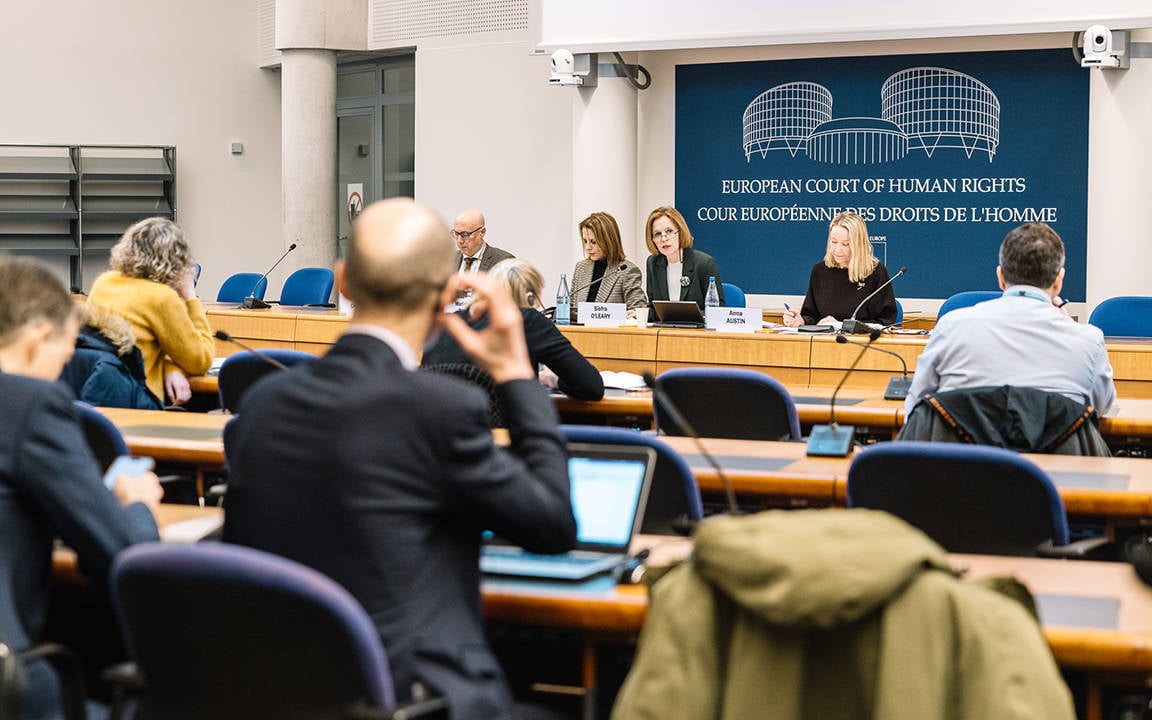Following the attack by the Islamic State of Iraq and Syria (ISIS) on the Nineveh province, an Iraqi family fled to İstanbul with their four children, prompting them to apply to the European Court of Human Rights (ECtHR) due to the threat of deportation. The ECtHR ruled that the decisions to deport them without assessing the risks they would face in Iraq violated Articles 2 and 3 of the European Convention on Human Rights, which regulate the right to life and the prohibition of torture, respectively.
The ECtHR highlighted that the initial decision by the İstanbul Administrative Court did not include an evaluation of the existence of a real risk of ill-treatment in Iraq but focused solely on the legal conditions for issuing the deportation document.
According to the European Syriac Union (ESU), in August 2014, ISIS attacked the Nineveh Plains, the homeland of the Syriac (Assyrian-Aramean-Chaldean) people, forcing the residents into mass migration. Churches, monasteries, villages, and homes were destroyed, hundreds of Syriacs were killed in the genocide, women and children were taken captive and sold, 85 churches were looted and bombed, three cemeteries were set on fire, and over 200,000 Syriacs were subjected to forced displacement.
What happened?
Until 2014, the family of four children and two parents lived in the Nineveh province of Iraq. In 2014, ISIS attacked the province.
Following the bombing of their home by ISIS, the family left Iraq and came to Turkey. They arrived in İstanbul on March 27, 2014, with a valid tourist visa through İstanbul Atatürk Airport. On July 7, 2014, while going to the İstanbul Security Directorate to schedule an appointment for a residence permit, they were detained on grounds of being "foreign individuals subject to legal action" and "individuals considered a threat to public security."
On the same day, the İstanbul Governor’s Office decided to deport the family to Iraq, despite entry bans, based on Article 54(1)(i) of the Law on Foreigners and International Protection (Law No. 6458), and an administrative detention order was issued before deportation.
On July 16, 2014, the family applied to the İstanbul Peace Criminal Court to object to their administrative detention and requested release. On July 25, 2014, the İstanbul 2nd Peace Criminal Court rejected their request. On August 7, 2014, they applied for a second request to be released. On the same day, the İstanbul 3rd Peace Criminal Court ruled that the administrative detention decision was legally invalid due to "lack of evidence."
The court mentioned in its decision that it considered the fact that the family had four children between the ages of four and nine. Also, it noted that asylum applications were pending when these procedures were carried out.
The family members were released, with a decision to leave Turkey within fifteen days (they are currently living in İstanbul).
Risk of death or ill-treatment
On August 19, 2014, the family's lawyer filed a lawsuit at the İstanbul Administrative Court for the annulment of the deportation decision.
In their application, they argued that the threat of deportation to Iraq would expose family members to a real risk of death or ill-treatment, considering the ongoing internal conflict, the specific threat posed by ISIS in the Ninevehregion, and their opposition to religious and political views.
To support their claims, they submitted numerous documents, including photos of their home in Iraq bombed by ISIS and copies of their asylum applications to the Directorate General of Migration Management (Refugee Office).
Additionally, they stated under Law No. 6458 that they were among those for whom deportation decisions could not be made due to "serious signs indicating the risk of facing the death penalty, torture, or inhumane or degrading treatment or punishment."
Rejection based on MİT information
On January 21, 2015, the İstanbul Administrative Court rejected their claims based solely on information obtained from the National Intelligence Organization (MİT). The documents classified family members as "individuals who could potentially engage in conflict."
The İstanbul Administrative Court concluded that, based on this information, the administrative decision to deport the applicants from Turkey was lawful.
According to the ECtHR ruling, the court failed to evaluate the applicants' claims that they would face a real risk of ill-treatment or death if ultimately sent to Iraq.
Their home was in an ISIS-controlled area in Iraq
Through their lawyers, the family filed an individual application to the Constitutional Court on March 4, 2015, stating that they would face the risk of inhumane or degrading treatment if deported to Iraq.
As a family living in an area controlled by ISIS in Iraq, they emphasized that they feared for their lives due to the ongoing armed conflict and the current threat posed by ISIS, and they had to flee. They also mentioned disputes with both ISIS and the Iraqi government.
They requested the postponement of their deportation through temporary measures.
On March 1, 2017, in the plenary session decision, the Constitutional Court fundamentally ruled that the applicants' rights under Article 17 of the Constitution (prohibition of torture, inhuman or degrading treatment) were not violated due to the deportation decision.
Despite acknowledging the family's fear of inhumane or degrading treatment if deported to Iraq, the Constitutional Court concluded that they did not provide "sufficient evidence or information" for this decision.
Subsequently, the family applied to the ECtHR.
The ECtHR ruled that the Constitutional Court also failed to assess the applicants' claims that they would face a real risk of ill-treatment or death if deported to Iraq when making this decision. (AS/VK)












